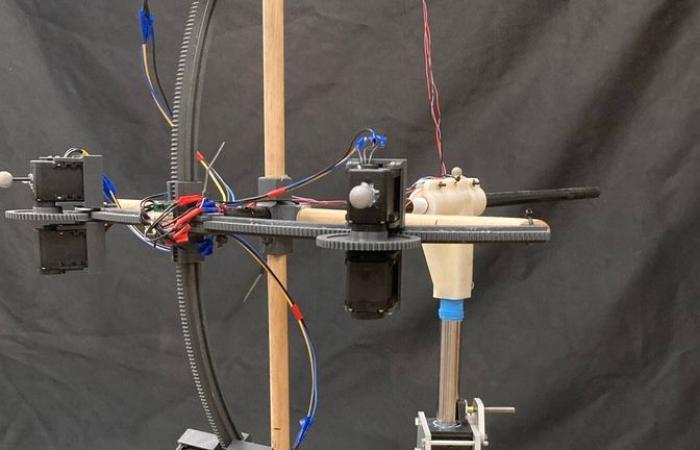Arabnews24.ca:Tuesday 9 August 2022 09:00 AM: Sir Isaac Newton first stated the laws of motion in Principia Mathematica back in 1687 and today those laws are seen as facts - that when something moves it has to push against something else.
But a new study may have fundamentally challenged the law of the conservation of momentum - at least in curved space.
Researchers from the Georgia Institute of Technology in the US have published a research paper that appears to prove the opposite - that when bodies exist in curved spaces, they can move without pushing against anything.
The peer-reviewed findings are published in the prestigious Proceedings of the National Academy of Sciences.
In the paper, researchers led by Zeb Rocklin created a robot which is confined to a spherical surface with what they describe as "unprecedented levels of isolation from its environment" so that only the effects of the sphere would be in action.
Advertisement
"We let our shape-changing object move on the simplest curved space, a sphere, to systematically study the motion in curved space," said Mr Rocklin.
"We learned that the predicted effect, which was so counterintuitive it was dismissed by some physicists, indeed occurred: as the robot changed its shape, it inched forward around the sphere in a way that could not be attributed to environmental interactions."
More from Science & Tech
The discovery certainly won't immediately lead to perpetual motion machines - the effects are extremely small.
However, the curvature-induced effect could be of enormous practical value in the field of precise robotics - similar to how the discovery of gravity shifts the frequency of satellite communications.
But as Einstein's research showed, space itself is curved and the researchers believe that "ultimately, the principles of how a space's curvature can be harnessed for locomotion may allow spacecraft to navigate the highly curved space around a black hole".
What did the experiment actually involve?
It is extremely difficult, to put it lightly, to examine an object on a sphere without the object exchanging momentum with its environment.
To do this the scientists allowed a number of motors to drive on curved tracks in a system that was connected to a rotating shaft, so that the motors were always moving on a sphere.
The shaft itself was supported by air bearings and bushing to minimise the friction and then it was even aligned so that it adjusted with the Earth's gravity to even further minimise that residual force.
They found that these motor robots moved gravity and friction did exert slight forces on them, but these forces appeared to combine with the curvature effects "to produce a strange dynamic with properties neither could induce on their own".
"The research provides an important demonstration of how curved spaces can be attained and how it fundamentally challenges physical laws and intuition designed for flat space," the scientists said.




